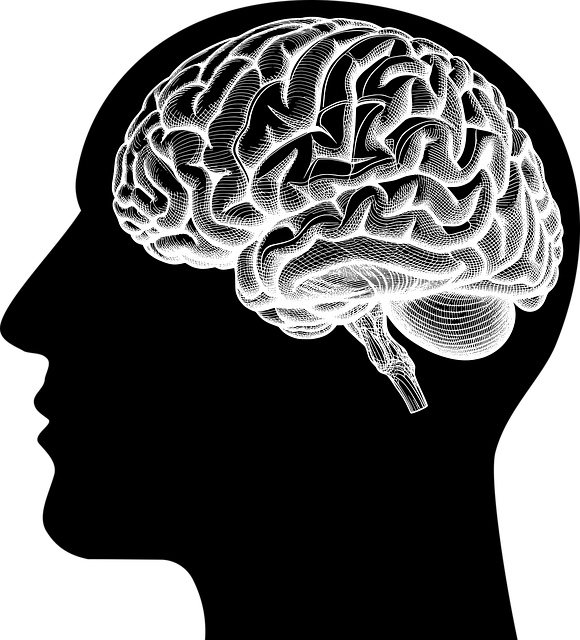Crisis intervention strategies play a vital role in supporting young adults (18-35) navigating adulthood complexities and geriatrics (65+) dealing with age-related challenges. Tailored therapy for these demographics uses evidence-based practices like self-awareness exercises, communication strategies, and empathy building to provide immediate relief and long-term resilience tools. For young adults, this includes addressing anxiety, societal pressures, and peer relationships; while for geriatrics, it involves adapted Cognitive Behavioral Therapy (CBT), mindfulness meditation, and risk assessments considering physical limitations and cognitive changes. Effective implementation requires age-specific approaches, focusing on open communication, peer support, mindfulness, goal-setting for young adults, and holistically addressing psychological and physical comfort for geriatrics, all underpinned by cultural sensitivity and risk management planning.
“In times of crisis, effective intervention can be a lifeline for young adults and geriatrics facing mental health challenges. This article provides an in-depth guide to crisis intervention strategies tailored for these distinct populations. We explore the unique needs of young adults, highlighting critical factors during crises. For geriatrics, we delve into suitable therapy approaches addressing their specific concerns. Additionally, practical guidelines equip professionals with essential tools to implement effective crisis intervention, fostering better support for both age groups.”
- Understanding Crisis Intervention: A Cornerstone of Mental Health Support for Young Adults and Geriatrics
- Assessing the Unique Needs of Young Adults During Crises: Factors to Consider
- Effective Therapy Approaches for Geriatric Populations in Crisis Situations
- Practical Guidelines for Implementing Crisis Intervention Strategies: Tips for Professionals
Understanding Crisis Intervention: A Cornerstone of Mental Health Support for Young Adults and Geriatrics

Crisis intervention strategies are a vital cornerstone of mental health support for both young adults and geriatrics. In moments of acute distress or during critical life transitions, effective crisis intervention can provide much-needed stability and guide individuals towards healthier coping mechanisms. For young adults navigating the complexities of adulthood, university pressures, and career uncertainty, as well as geriatrics dealing with age-related challenges and loss, these interventions are essential.
Therapy for Young Adults and Geriatrics often incorporates specific techniques such as self-awareness exercises to help individuals recognize and manage their emotions, communication strategies to foster open dialogue, and empathy building strategies to strengthen understanding between support systems and the person in crisis. These evidence-based practices not only offer immediate relief but also equip individuals with long-term tools to navigate future challenges, fostering resilience and enhancing overall mental well-being.
Assessing the Unique Needs of Young Adults During Crises: Factors to Consider

When crisis intervention strategies are tailored for young adults, assessing their unique needs is paramount. Unlike geriatrics, where physical health might be a primary concern, young adults often face challenges tied to mental well-being, such as anxiety relief and cultivating compassion within stressful situations. Therapists should consider the impact of societal pressures, academic or career expectations, and peer relationships on their clients’ emotional resilience.
Factors like lifestyle choices, exposure to trauma, and existing mental health conditions play a significant role in how young adults navigate crises. Incorporating evidence-based practices such as compassion cultivation can be beneficial. By promoting positive thinking and emotional regulation, these strategies empower young adults with tools to cope effectively during challenging times, distinguishing the approach from traditional geriatric therapy.
Effective Therapy Approaches for Geriatric Populations in Crisis Situations

In crisis intervention settings involving geriatric populations, tailored therapy approaches are essential to address unique challenges. Many elderly individuals may struggle with physical limitations or cognitive changes that can impact their emotional resilience and coping mechanisms. Thus, therapists should incorporate adaptive strategies and consider the individual’s overall well-being, including physical health and sensory needs. Therapy for young adults geriatrics can effectively leverage evidence-based practices such as cognitive behavioral therapy (CBT) adapted to address age-related concerns. These sessions can enhance self-awareness exercises by guiding clients to identify and manage crisis triggers, promote problem-solving skills, and foster adaptive coping strategies.
Additionally, integrating mindfulness meditation techniques has proven beneficial for geriatric mental health. Encouraging participants to focus on the present moment can reduce anxiety and improve emotional regulation. Mindfulness practices also enhance self-compassion, which is crucial in mitigating the impact of age-related stressors. Given the increased risk of depression and anxiety in older adults, therapists must conduct thorough risk assessments for mental health professionals to identify potential crises early. This proactive approach ensures that interventions are timely and tailored to meet the specific needs of geriatric clients.
Practical Guidelines for Implementing Crisis Intervention Strategies: Tips for Professionals

Implementing crisis intervention strategies requires professionals to be equipped with practical guidelines tailored to different populations, such as young adults and geriatrics. For therapy sessions with young adults, the focus should be on fostering open communication, encouraging peer support networks, and teaching coping mechanisms that align with their developmental stage. This might include techniques like mindfulness, stress management, and building resilience through goal-setting exercises.
When assisting geriatric individuals in crisis, professionals must consider age-related factors such as cognitive changes, chronic illnesses, and potential medication interactions. A holistic approach is essential, incorporating not only psychological interventions but also ensuring physical comfort and addressing any medical needs. Additionally, practicing cultural sensitivity in mental healthcare, as per the Mental Health Policy Analysis and Advocacy framework, is crucial for building trust and offering appropriate support, especially when working with diverse geriatric populations. Incorporating risk management planning into routine practice ensures professionals are prepared to handle potential complications, promoting safe and effective crisis intervention for all age groups.
Crisis intervention plays a vital role in supporting both young adults and geriatrics navigating turbulent times. By understanding the unique needs of each demographic, professionals can implement effective therapy approaches tailored to their specific crises. This article has explored essential strategies, from assessment techniques to practical guidelines, empowering mental health advocates to offer crucial aid. By integrating these insights into practice, professionals can enhance their ability to provide timely and meaningful support, fostering positive outcomes for young adults and geriatrics alike.













